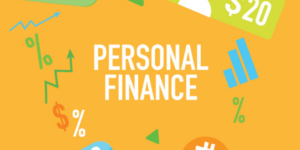Blockchain technology has become a major force in the ever-changing financial world. It changes the way transactions are executed, verified and recorded. Blockchain originally emerged as the technology behind cryptocurrencies like Bitcoin, but has many applications beyond just digital currencies. This article describes how blockchain is changing the financial world. It talks about the basic ideas, uses, pros and cons, and the future it sees.
1. How to Understand Blockchain: Building Trust
Blockchain is essentially a decentralized and distributed digital ledger that tracks events across many computers in a secure, clear, and immutable manner. Each record or block in the chain has a cryptographic hash value of the block that preceded it. This creates a continuous chain of information that cannot be changed. Because blockchain is decentralized, it does not require an intermediary such as a bank or payment processor to transfer transactions directly from one person to another.
2. How Blockchain is Applied to the Financial World:
- Cryptocurrencies: Creating and managing cryptocurrencies is the most well-known use of blockchain in business. Blockchain technology powers Bitcoin, Ethereum and many other digital currencies, making them a secure and useful alternative to traditional currencies.
- Smart Contracts: A smart contract is an agreement between a buyer and a seller that is written directly in lines of code and starts functioning as soon as the buyer signs it. These contracts automatically enter into force when certain conditions are met. This ensures that transactions are reliable and clear, without the need for intermediaries.
- Cross-Border Payments: Blockchain makes it easier to send money across borders quickly and securely; Foreign transactions usually go through multiple banks and take several days to process. With blockchain, transfers can be made almost instantly and at lower costs.
- Supply Chain Financing: Blockchain makes supply chains more open by tracking every step of the production and distribution process. This makes it easier to track products, reduces fraud and improves supply chain management, making financial processes run smoother.
- Tokenization of Assets: Blockchain makes it possible to tokenize assets in the real world, meaning stocks, real estate, art, etc. can be converted into digital currency. These tokens can be bought, sold and moved on the blockchain platform. This allows for fractional ownership and increases liquidity in a typically illiquid market.
3. Why Blockchain is Good for the Financial World:
- Better Security: Because blockchain is autonomous, it has strong security. Once the data is stored, it cannot be changed without the permission of everyone on the network. This ensures a high level of data security and reduces the risk of fraud.
- Greater Efficiency: Transactions on the blockchain happen instantly, so there are no delays like standard banking. Eliminating middlemen also improves processes, reduces transaction costs and increases efficiency.
- Financial Inclusion: Blockchain technology enables the unbanked to access banking services, loans and other financial products through decentralized applications (DApps) built on blockchain platforms.
- Transparency and Accountability: All network members can see and understand transactions recorded on the blockchain. This openness creates trust and responsibility, which is important in financial transactions and audits.
4. Problems and Prospects:
Blockchain has great potential, but issues such as how to make it scalable, how to set rules for it and how much energy it consumes need to be resolved. As blockchain networks grow, scalability issues arise, which can slow down transactions. Furthermore, governments and regulators around the world are working to create a complete framework to ensure the responsible use of blockchain technology.
Looking ahead, the future of blockchain in the banking sector looks bright. New technologies such as second-tier solutions, the ability of different blockchain networks to work together, and consensus methods such as proof-of-stake aim to solve existing problems. Furthermore, the growth of central bank digital currency (CBDC) and blockchain applications could change the financial environment, making transactions safer, faster and easier for people around the world.
5. Conclusion:
Blockchain technology is a shining example of a new concept in the financial world. It revolutionizes the way transactions work and trust is built. As its use continues to grow, blockchain has the power to transform not only the financial sector, but many other parts of the global economy. Blockchain makes transactions easier, more secure and more convenient for everyone, no matter where they live or how much money they have. It does this by increasing transparency, improving transaction security and encouraging financial inclusion.
FAQs:
1. What is the application of blockchain technology in the financial field?
Blockchain technology in the financial field refers to a decentralized and secure digital ledger system that can record transactions on multiple computers. It ensures transparency, reduces the need for intermediaries and improves the security of financial transactions.
2. How does blockchain improve the security of financial transactions?
Blockchain improves security by using encryption technology to protect transactions. Once the data is recorded on the blockchain, it cannot be changed without network consensus, ensuring the record is tamper-proof and reducing the risk of fraud.
3. What are smart contracts and how do they function on the blockchain?
Smart contracts are self-executing contracts whose predefined terms are written into the programming code. They are executed automatically when conditions are met, ensuring reliable transactions without intermediaries. Blockchain can execute and verify smart contracts.
4. Can blockchain technology revolutionize cross-border payments?
Yes, blockchain technology simplifies cross-border payments by enabling secure and fast transfers without the need for multiple intermediaries. It reduces processing time from days to near-instant transfers, making international transactions more efficient.
5. What challenges does blockchain face in the financial sector?
Challenges include scalability issues, regulatory frameworks and energy consumption. As blockchain networks expand, scalability issues arise and regulatory frameworks are critical to ensure responsible adoption. Energy consumption during blockchain mining is another challenge for sustainable development.



